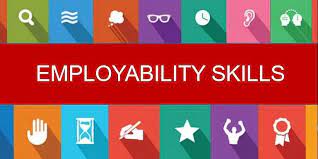
Credit: Leverage Edu
As a student, you need to be serious with your educational career to be able to attain excellence in your academic pursuits and enjoy a successful working career later in life. It is noteworthy that there is a difference between a job and a career.
Though the words “Job” and “Career” are often used interchangeably, they indeed maintain a world of difference in meaning. A job is work for which you receive pay. Jobs are often a means to an end. Human resource development experts such as Dr. Freda Turner, chair of Management, Leadership and IT – with University of Phoenix, the USA’s largest private university, say, for instance, a job helps you pay for your accommodation, children’s school fees, bills and other necessities of life. On the other hand, a career is a lifetime journey of building and making good use of your skills, knowledge and experiences.
Clarification
Sometimes jobs lead to careers. Jobs are often times task-oriented positions to help meet the goals of an organisation or business. On the other hand, that job you have recently landed may be the first of many long steps leading you nowhere. According to Turner, career planning is the ability to look ahead and think about where you are going and what steps you need to get there. A career is something that excites you, that uses your best skills and talents, and that fits with your lifestyle.
Research
Research has confirmed that building a career unfolds over your lifetime, with bits and pieces of it happening every day. To begin truly building for a fulfilling career, you need to do some soul searching. What is really important to you? How do you see family life and children? What is your cultural background and how does that affect your daily life? It is important to ask yourself some serious questions as you begin to plan your life’s work.
Turner says if you continue to work on career planning throughout your lifetime, you will find that although your career may shift and grow, it will still easily fit with the lifestyle that you have chosen and with the events – planned and unplanned – that you may face.
Career change
According to Marsha Myers, a successful career changer and senior vice president of Lee Hecht Harrison, a global human-resource outplacement consulting firm in Jacksonville, Florida, United States, “Change is scary for everyone. The successful career changer is self-responsible, self-motivated with good people skills. One must also be willing to accept change.”
Myers says many career experts agree that the best time to look for a new job is while comfortably in your old one. Experts say if you are starting to feel unchallenged in your present position, you may be ready for promotion to the next level and if there are not many career advancement opportunities where you work, the best next job may be waiting for you elsewhere. They stress that nowadays, it is up to you to take control of your professional future and make sure you are progressing wisely down the right career path.
Transition to the top
Research has shown that passing through middle management on your way to the top is often unavoidable and getting stuck there, however, does not have to be. Experts reflect that an extended stay in middle management may occur for a few reasons. One, the manager may fall into the “complacency trap”, a sort of holding tank for those who are content with a little bit of success.
Or the manager could be instructed to overhaul a project in the midst of “change”, which is like being invited to a party without an end. Another common scenario is that the manager who is viewed as too valuable to go anywhere else. Experts such as Larry Cook say being indispensable may be the highest form of workplace flattery, but it would not always help you get ahead. Experts submit that you can avoid getting stuck in the middle of middle management by deploying some strategies.
Staying informed
The first of these strategies is to be informed. Information is still power and the more you know about why you are where you are, the better equipped you will be to move through a situation. Having the knowledge of why, for instance, you were chosen to manage a particular project will help you determine how to complete the task and move on. Ask a lot of questions and, before informing your team, make sure you have as many answers as possible. Again, this will help you maintain momentum. Staying informed is also good medicine for remaining calm.
Influencing upper management
Another strategy is to use your influence. You may feel stuck in middle management, but that does not mean you do not have something valuable to share. Nothing speaks louder than data with hard figures. Anecdotal evidence that supports the project is also valuable, as are priceless customer testimonials.
Trust bridge
Another thing to do is to build a bridge of trust. The middle manager’s job is to implement new ideas that come down from the executive leadership. The line staff do their work and any questioning of the top brass is often whispered from one cubicle to the next. Rather than have your people guess and wonder and, ultimately, worry (which can significantly disrupt productivity), become the bridge of trust.
Experts such as Barrie Gross suggest that in this role, you present top management’s vision to your staff and demonstrate where they fit in. If you have to translate, then do so. If you do not know the answer to a question, tell them you will find out and be sure to fulfil that promise. Just as you must speak the language of upper management, you must also communicate with your staff so that they know what they have to do. Making time for both paths of communication, with leadership and the line workers, is important.
Boldness
To avoid getting stuck in the middle, you need to be bold. Research shows that sometimes being in the middle is confusing. You may ask yourself, “Am I a worker bee or the one in charge?” “Where are my alliances?” “Who’s looking out for me?” When we are unsure, we tend to be more careful, sometimes too much so. Do not show timidity or risk-averse just because you are nervous about an outcome. Remember, the more information you have, the better equipped you are to make decisions.
According to Myers, to get started towards achieving career advancement, experts recommend the following tips.
Discussing with your boss
The first of these strategies is to discuss with your boss. Sit down and have a very direct and pointed conversation with your boss about your future in the company. Stress that you want your job performance to meet the company’s goals. Share your own career goals with him or her. Your boss will respect this display of confidence and maturity.
Sharpening your people skills
Having strong interpersonal skills plays a crucial role in gaining the respect of your boss and co-workers, as well as attracting the notice of outside influencers who might open new doors of opportunity for you. Be friendly, outgoing, and personable. Listen carefully to people and practise being a clear, effective communicator.
Getting a mentor
Develop mentoring relationships, either inside or outside the company. Recent studies have shown that four out of five promotions are influenced by a mentor higher up in the company. Mentors are also great sources of information and career guidance.
Networking
Strengthen your personal network by joining professional organisations, attending industry conferences, and even volunteering. The more people who are aware of your strengths and abilities, the better your chances of getting to know about any new opportunities that might arise.
Building your reputation
In business, your reputation is the most valuable thing you own. Be known for being dependable, professional, and cooperative. Act and look the part by dressing professionally. Make a name for yourself by attending conferences, delivering speeches, or writing articles.
Requesting for additional work
Myers says volunteering to help out other departments or teams — or simply asking for more responsibilities — increases your value within the organisation. Asking for additional work shows an interest and desire to help your department and company to succeed. It also puts a spotlight on your value to the business.
Marketing yourself
Another thing you can do is to learn the art of self-promotion. If you have had major accomplishments or created successful programmes, make sure people know about them, especially those in influential positions who could help you advance professionally. Let it be known that you are seeking promotion or the next step up in your career.
Round-off
Above all, a proven way to advance in your career is to be continually acquiring new knowledge. Stay on top of trends or developments in your field and make sure that your current curriculum vitae reflects the needed skills.



















